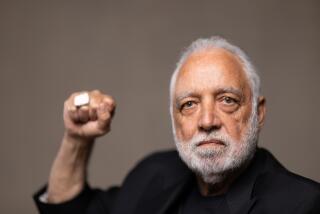Presidents Are Nice, but Harlem and L.A. Need Investors
Former President Clinton’s official move into his 14th-floor penthouse office in Harlem ignited a round of ecstatic celebrations among Harlem’s mostly black residents.
His rapturous greeting is no surprise. In a 1998 New Yorker magazine article, Nobel laureate Toni Morrison declared him “our first black president.” This is not hyperbole. During Clinton’s White House years, blacks were his most passionate boosters. They defended him during the Whitewater and Monica Lewinsky scandals and his impeachment trial. Even the storm that raged over his pardon of fugitive financier Marc Rich and the desertion by many of his business and government boosters in protest did not cool the passion many blacks felt for him.
Polls still show that most blacks rate Clinton as one of the best presidents. They hold him in great esteem because he made more top-level black appointments than any other president, boosted spending on education and health programs, battled for tougher hate crime laws and was the first president since Lyndon Johnson to speak out forcefully on the racial divide.
But there’s another, even bigger, reason for their Clinton infatuation: fear. After a decade of Republican conservatives’ relentless battering of affirmative action and education and social programs and the relentless, low-intensity political warfare between President Bush and black leaders, blacks see Clinton as the thin white line that shields them from even greater social and economic devastation. The hope is that his Harlem sojourn will shame and embarrass more financial and corporate types to invest in chronically depressed and underserved inner-city neighborhoods.
This is wishful thinking. The ugly truth is that South-Central Los Angeles, Harlem and other economically stagnant urban areas continue to deteriorate because banks, businesses and public officials believe the racist fiction that these areas are wastelands of rot and ruin. They have horrific visions of riots and crime. Banks shackled with fear, indifference and blatant racial discrimination are loath to provide loans and technical assistance to black-and Latino-owned small businesses.
And investment is what blighted urban areas such as Harlem and South-Central Los Angeles need--whether a former president sets up shop there or not.
More to Read
Sign up for Essential California
The most important California stories and recommendations in your inbox every morning.
You may occasionally receive promotional content from the Los Angeles Times.










